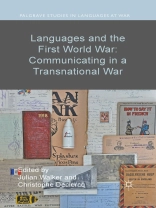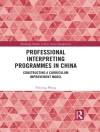This book examines language change and documentation during the First World War. With contributions from international academics, the chapters cover all aspects of communicating in a transnational war including languages at the front; interpretation, translation and parallels between languages; communication with the home front; propaganda and language manipulation; and recording language during the war. This book will appeal to a wide readership, including linguists and historians and is complemented by the sister volume
Languages and the First World War: Representation and Memory which examines issues around the representation and memory of the war such as portrayals in letters and diaries, documentation of language change, and the language of remembering the war.
สารบัญ
PART I: LANGUAGE AT THE FRONT.- Chapter 1:‘The….“parlez” is not going on very well “avec moi.” Learning and using “trench French” on the Western Front’.- Chapter 2: “We did not speak a common language”: African soldiers and communication in the French Army, 1914-18.- Chapter 3: Habsburg Languages at War: “The linguistic confusion at the tower of Babel couldn’t have been much worse”.- Chapter 4: Fritz and Tommy: Across the Barbed Wire.- Chapter 5: Caught in the crossfire; interpreters during the First World War.- PART II: WRITING HOME.- Chapter 6: Poetry, parables and codes: translating the letters of Indian soldiers.- Chapter 7: “Dear Mother, I am very sorry I cannot write to you in Welsh…” – Censorship and the Welsh language in the First World War.- Chapter 8: Sociolinguistic aspects of Italian war propaganda: Literacy, dialects and popular speech in the Italian trench journal L’Astico.- Chapter 9: Belgium and the semantic flux of Flemish, French and Flemings.- PART III:THE HOME FRONT.- Chapter 10: Malta in the First World War: Demon Kaiser or Colonizer?.- Chapter 11: From Hatred to Hybridisation: the German Language in Occupied France, 1914-1918.- Chapter 12: Persuasion vs. Deception: The Connotative Shifts of “Propaganda” and Their Critical Implications.- Chapter 13: Linguistic syncretism as a marker of ethnic purity? Jeroom Leuridan on language developments among Flemish soldiers during the First World War.- PART IV: COLLECTING CONFLICT WORDS.- Chapter 14: English Words in War-Time: Andrew Clark and living language history 1914-18.- Chapter 15: ‘Extraordinary Cheeriness and Good Will’: The Uses and Documentation of First World War Slang.
เกี่ยวกับผู้แต่ง
Julian Walker is an educator at the British Library, an artist and writer. His books on language include
Discovering Words, Team Talk: Sporting Words and their Origins and
Trench Talk: Words of the First World War.
Christophe Declercq is a lecturer in translation (University College London, UK and University of Antwerp, Belgium) who has been working on Belgian refugees in Britain for well over a decade. On the subject, he has spoken widely at conferences in both Britain and Belgium, has worked with the BBC and VRT (Belgian television) and manages several social media outlets.












